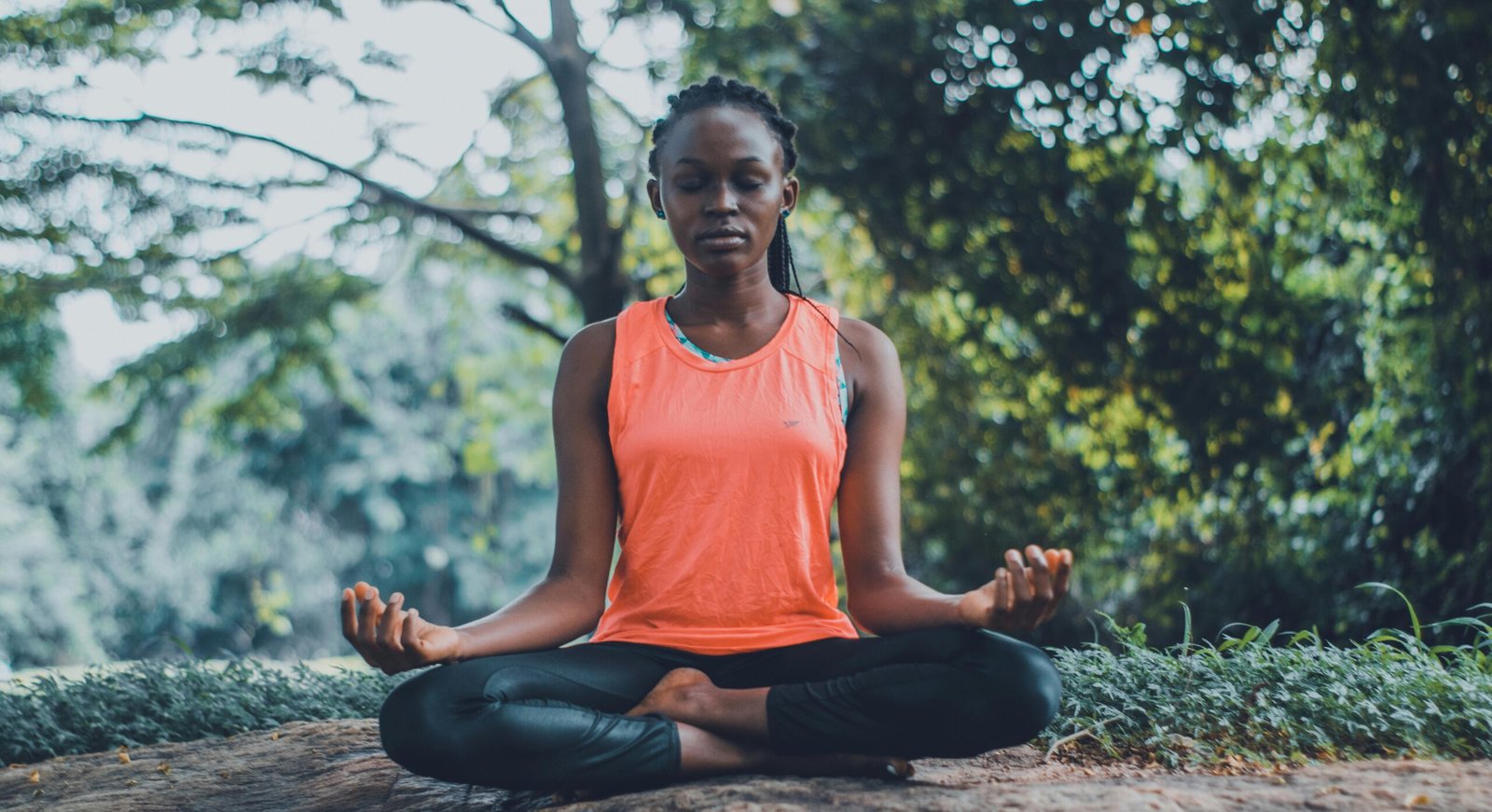Meditation has been practiced for thousands of years, and in today’s fast-paced world, it’s more relevant than ever. Whether you’re looking to reduce stress, improve your mental health, or simply find some peace in your hectic day, meditation offers a wide range of benefits. But how do you get started? In this article, we’ll explore the numerous benefits of meditation and guide you through how to begin your own practice. Let’s dive into the transformative power of meditation!
1. What is Meditation?
Before we jump into the benefits, let’s first define what meditation actually is. At its core, meditation is a practice of focusing the mind, calming the body, and bringing awareness to the present moment. It involves various techniques, such as focused breathing, visualization, or repeating a mantra, to cultivate a peaceful and mindful state.
Meditation can be done anywhere—whether it’s at home, in nature, or even at work during a break. What matters is your intention and consistency in your practice. Now that we have a basic understanding of meditation, let’s explore the incredible benefits it can bring.
2. Reduces Stress and Anxiety
One of the most well-known benefits of meditation is its ability to reduce stress and anxiety. In today’s world, stress has become a constant companion for many of us. From work pressures to personal obligations, life can often feel overwhelming. Meditation helps by triggering a relaxation response, which lowers levels of the stress hormone cortisol. By focusing on your breath and calming your mind, you create a safe mental space where stress can melt away.
How Meditation Helps
Meditation works by encouraging deep breathing and mindfulness, which in turn activates the parasympathetic nervous system, the part of your body that is responsible for rest and digestion. When you engage in regular meditation, you can rewire your brain’s response to stress, making you less reactive in stressful situations.
3. Improves Mental Health
Meditation is not just about reducing stress—it also plays a vital role in improving overall mental health. It can help with conditions like depression, anxiety, and even post-traumatic stress disorder (PTSD). Regular meditation has been shown to increase the thickness of the prefrontal cortex, the part of the brain associated with higher cognitive functions like decision-making, awareness, and emotional regulation.
Meditation’s Impact on Mental Health
By practicing meditation, you can gain a greater understanding of your thoughts and emotions. This awareness enables you to manage negative thinking patterns, break free from destructive behaviors, and foster a more positive outlook on life. Whether you’re looking to ease anxiety or improve your mood, meditation can offer profound relief.
4. Enhances Focus and Concentration
Another incredible benefit of meditation is its ability to improve focus and concentration. In a world full of distractions, maintaining attention on one task can be a challenge. Meditation trains your mind to focus on the present moment, whether it’s your breath, a sound, or a specific object. This increased mindfulness sharpens your ability to concentrate, both during meditation and in your daily life.
How Meditation Improves Focus
Meditation strengthens the brain’s ability to focus by increasing grey matter in the areas responsible for memory, learning, and attention. Over time, this results in a sharper, more present mind that is able to block out distractions and stay engaged for longer periods.
5. Promotes Better Sleep
If you struggle with sleep or insomnia, meditation could be your solution. By calming the mind and reducing stress, meditation can help you fall asleep faster and improve the quality of your sleep. Instead of lying awake with racing thoughts, meditation can create a state of relaxation that primes your body for rest.
How Meditation Aids Sleep
Meditation techniques, such as progressive muscle relaxation or deep breathing, help activate your body’s relaxation response, making it easier to unwind at the end of a long day. Regular meditation practice has been linked to improved sleep quality and a more consistent sleep schedule.
6. Strengthens Emotional Health
Emotional health plays a crucial role in how we navigate the world. Meditation allows you to gain greater emotional intelligence by cultivating mindfulness and self-awareness. When you meditate, you create a space where you can observe your emotions without judgment, which helps you understand your feelings more deeply.
Emotional Benefits of Meditation
Meditation can help you become more empathetic, compassionate, and patient—not just with others, but with yourself. By practicing gratitude and mindfulness, you can develop a greater sense of emotional balance and resilience, which will positively impact all aspects of your life.
7. Enhances Self-Awareness
Self-awareness is the ability to reflect on your thoughts, behaviors, and emotions. Meditation fosters this self-reflection by helping you become more in tune with your inner world. As you sit in silence, you develop a deeper understanding of your habitual thought patterns, emotional responses, and life goals.
How Self-Awareness Impacts Personal Growth
When you cultivate self-awareness through meditation, you can identify areas in your life that need attention or improvement. This insight can lead to greater personal growth, healthier relationships, and the ability to make choices that align with your true values.
8. Boosts Immune System Function
Meditation does more than just improve mental health—it also has a direct impact on physical health. Research has shown that meditation can boost your immune system, helping your body fight off illness. When you meditate, your body enters a relaxed state, which improves circulation, reduces inflammation, and strengthens your overall immune response.
Meditation’s Impact on Immunity
Consistent meditation practice has been shown to reduce the production of inflammatory markers in the body, promoting better health and resilience against diseases. It also enhances the production of immune cells, providing extra support when your body needs it the most.
9. Increases Compassion and Empathy
Meditation encourages compassion and empathy toward both yourself and others. Practices like loving-kindness meditation focus on cultivating feelings of love, kindness, and goodwill, which can enhance your relationships and foster a greater sense of connectedness with the people around you.
How Meditation Cultivates Compassion
By meditating with the intention of sending love and positive thoughts to others, you open your heart to new levels of empathy. Whether you practice this with family, friends, or strangers, meditation helps you connect with others in a deeper, more meaningful way.
10. Strengthens Your Resilience
Resilience is the ability to bounce back from setbacks, and meditation can significantly increase your emotional and mental resilience. By learning to respond calmly to stress and adversity, you develop a stronger capacity to navigate challenges with grace and clarity.
How Meditation Builds Resilience
Meditation helps you cultivate a sense of inner peace that remains stable, even in the face of hardship. By regularly practicing mindfulness, you strengthen your ability to respond to life’s difficulties without becoming overwhelmed by them.
11. How to Get Started with Meditation
If you’re new to meditation, getting started might seem intimidating. But the good news is that meditation doesn’t require special equipment or expertise. Here’s a simple guide to help you begin your journey.
Step 1: Find a Quiet Space
Choose a calm, quiet place where you won’t be interrupted. This could be a corner of your home, a peaceful park, or even a comfortable chair by a window.
Step 2: Set a Timer
If you’re just starting out, begin with 5-10 minutes of meditation. As you get more comfortable, you can gradually extend your sessions. Setting a timer allows you to focus on your practice without worrying about time.
Step 3: Focus on Your Breath
Close your eyes, sit comfortably, and focus on your breath. Breathe in deeply through your nose, hold for a moment, and exhale slowly through your mouth. When your mind starts to wander (and it will!), gently bring your focus back to your breath.
Step 4: Try Guided Meditation
If you find it difficult to meditate on your own, try guided meditation. There are countless apps and websites that offer free or paid guided sessions that can help you stay focused and relaxed during your practice.
Step 5: Be Patient with Yourself
Meditation is a skill that takes time to develop. Don’t be hard on yourself if your mind drifts or if you struggle at first. With consistency and patience, your practice will improve, and you’ll begin to experience the benefits of meditation.
12. Common Meditation Techniques
Meditation comes in many forms, so it’s important to find the technique that works best for you. Here are a few common methods:
Mindfulness Meditation
This involves paying attention to the present moment without judgment. You simply observe your thoughts, emotions, and sensations as they arise, letting them pass without becoming attached to them.
Loving-Kindness Meditation (Metta)
In this practice, you focus on cultivating compassion and love for yourself and others. It involves repeating phrases like “May I be happy, may I be healthy” and extending these wishes to others.
Body Scan Meditation
This technique involves paying attention to different parts of your body, noticing sensations and releasing tension as you move through each area.
Transcendental Meditation
A type of mantra meditation where you repeat a word or sound to help you enter a deep state of relaxation and awareness.
13. Overcoming Obstacles in Meditation
Starting a meditation practice can come with challenges. Here are a few common obstacles and how to overcome them:
Mind Wandering
It’s normal for your mind to wander during meditation. Simply notice the distraction and gently guide your focus back to your breath or mantra.
Lack of Time
Start with just a few minutes each day. As you build a habit, you can gradually increase the length of your sessions.
Frustration
Meditation can be frustrating at first. Don’t expect instant results. Be kind to yourself and remember that meditation is about progress, not perfection.
14. Meditation Resources to Help You
If you want to deepen your meditation practice, there are plenty of resources available to support you.
Meditation Apps
There are several apps available for guided meditations, including Headspace, Calm, and Insight Timer. These apps offer a variety of meditation styles and lengths to suit your needs.
Books on Meditation
Books like “The Power of Now” by Eckhart Tolle and “Wherever You Go, There You Are” by Jon Kabat-Zinn are excellent resources for learning about mindfulness and meditation.
15. Conclusion: Embrace the Power of Meditation
Meditation is a simple yet profound practice that can bring about significant positive changes in your life. Whether you’re seeking better mental health, increased focus, or greater peace, meditation offers an accessible and effective solution. The benefits are vast and far-reaching, from emotional well-being to physical health. By starting your own meditation practice today, you can begin your journey toward a more balanced, peaceful, and fulfilling life.
5 Unique FAQs
- How can I start practicing meditation at home?
Begin by setting aside 5-10 minutes daily, sitting in a comfortable position, and focusing on your breath. Use apps or guided meditations to help you stay focused. - Can meditation really improve my mental health?
Yes! Regular meditation helps reduce stress, anxiety, and depression while promoting emotional balance and resilience. - How do I overcome distractions during meditation?
When distractions arise, simply acknowledge them and gently return your focus to your breath or mantra. It’s normal for your mind to wander. - Is there a “right” way to meditate?
There’s no one-size-fits-all method. Try different techniques and see what works best for you, whether it’s mindfulness, loving-kindness, or body scan meditation. - How long should I meditate each day to see benefits?
Even just 5-10 minutes daily can lead to noticeable benefits. As you get more comfortable, you can gradually increase the duration of your practice.





